|
“She said yes!” is commonly heard in engagement stories, echoing the excitement and joy of making the decision to have one’s life forever complemented with another in marriage. As we prepare to celebrate the Solemnity of the Annunciation on Saturday, the Church rejoices in Mary’s acceptance of God’s place for her in His divine plan of the salvation of mankind. Of course, Mary’s “yes” to God is not the only such instance in Scripture; on the contrary, each protagonist’s story within its pages involves his or her responding to the will of God throughout history, from God’s command to “be fruitful and multiply” to Adam and Eve through his instruction to the exiled St. John the Evangelist to “Write, therefore, what you have seen, what is now and what will take place later.” Just like each person in Scripture, we too can share in the delight of accepting God’s will for us through our faith and the surrendering of our personal desires and wants to Divine Providence.
Every book of the Bible recounts at least one instance of God calling a prophet, judge, king, or another figure, no matter their status, to a higher purpose. I particularly enjoy the story of the boy Samuel, whom God called three times before the future judge and prophet, finally understanding Who kept waking him, answered. All of these accounts are more than nice stories—they serve to illustrate the different ways of answering God’s call as well as how God continues to guide us after we answer. The biblical theme still rings true today: “I have called you by name, and you are mine.” On the occasion of the Annunciation, Mary’s “yes” undoes Eve’s “no” to God. Through Mary, the Word was made flesh and she became the new “Mother of the Living” (CCC 489). This motherhood extends to us all! As a result of Mary’s “yes,” she became a tabernacle of the living God now made man. Christ’s complete embrace of humanity during His earthly ministry still affects us today. We are called to allow Him to more fully enter into our lives just as He did in the Virgin’s womb. By creating space for Christ, as Mary did, we are enabled to fully surrender to the Divine Will; our “yes” to God can then echo Mary’s crucial response, “Behold, I am the handmaid of the Lord. May it be done to me according to your word.” How shall we respond? At the Archdiocese of Washington’s Rite of Election this past month, I was blessed to observe over a thousand adults, teens, and children be presented to the Cardinal in order to be baptized or confirmed as Catholics in the Archdiocese of Washington this Easter. They, like Mary, have said “yes!” to God’s invitation. It’s a beautiful witness to see the participants’ formal expression of their desire to become Catholic before their loved ones, sponsors, and the Church. The Rite of Election kicks off a final period of intense spiritual preparation much like our experience of Lent, in which they are called to follow the Lord. As baptized members of Christ’s Body, we are called to offer our support, love, and prayers for these catechumens and candidates as each continues his or her faith journey, that all may strive to remain close to the Lord Who has called them to Himself. Our “yes!” does not occur in a vacuum. Even the already baptized are called to be a light for each other as each of us experiences darkness in our lives. No matter our insecurities or doubts, no matter our past failings or unworthiness, God still continuously calls to us, ever lovingly, ever patiently, ever gently, ever earnestly. Mary had her own questions when the archangel Gabriel dramatically announced God’s plan for her. If you’re like me, you want all the details before making a decision! But, as we read throughout scripture, one’s trust in God is never misplaced. God can—and does—do great things through us if only we allow ourselves to be like “a little pencil in the hand of a writing God.” May we, then, always share the Good News of Christ’s Resurrection, the hope that we share as we receive Communion, as we journey to the Cross, and as we profess—and experience—God’s love. By the grace of God and the support of each other, may we, at every moment of our lives, join with the whole Church and the heavenly host to praise God for His mercy and goodness: “‘Our Savior, Jesus Christ, has destroyed death, and brought us light and life!’ No wonder we [reply], ‘Alleluia!'” (Cardinal Timothy Dolan) **This blog was originally published on March 23, 2017.**
0 Comments
Next week is Holy Week. Before we arrive there and enter the most solemn of days of the Church year, the Easter Triduum, we come to another Solemnity during the Lenten season. Last week, it was the Solemnity of St. Joseph, spouse of the Blessed Virgin Mary and patron of the Universal Church. Tomorrow, it is the Solemnity of the Annunciation of the Lord. Both offer us examples of how to respond to God’s action in our lives. The Blessed Virgin Mary and St. Joseph responded freely and fully to God’s invitation announced by the angel to move in directions that they did not expect. While we may not have an angel announcing God’s will for us, in what ways do we discern the direction that we are called to take? Recently, I attended the religious profession of a Benedictine monk who is a former student of mine. Some of those who attended the Mass and profession ceremony in support of him were also former students who are now either diocesan or religious priests or married with children. (Some are also former staff members and collaborators of the Center.) Each in their own way has followed God’s invitation to them. In and through their chosen vocations, they have found joy in living more deeply their Christian life.. While they have found joy, they also know what it means to take up the cross and follow Jesus Christ as his disciples. None of them made the choices that they did easily, but did so through cooperation with the grace of Christ. We are called to the same. Holy Week offers us an important opportunity to reflect, discern, and act on God’s will in our lives. Join us on social media for our Virtual Holy Week retreat. We offer it as a way of doing this type of discernment in the context of this most solemn time. Please know that our prayers are with you, especially during the Easter Triduum and season. May the charity of Christ urge us on!
“Let us allow ourselves to be loved, so that we can give love in return. Let us allow ourselves to stand up and walk towards Easter. Then we will experience the joy of discovering how God raises us up from our ashes.” -Pope Francis (Ash Wednesday Homily, 2020)
Today is the Solemnity of the Annunciation of the Lord. Due to COVID-19, we might believe that we have returned to Ash Wednesday and everything is reduced to ash, even our practice of the faith. Our daily lives have changed or are changing in ways never seen before. But we Christians are people of hope. Hope in God who provides. With the message of the Angel Gabriel that she had conceived the Son of God by the Holy Spirit, the life of the Blessed Virgin Mary changed in a way never known before or since. She trusted, in the love of God that is ever abiding. It gave her the strength to say yes in faith. Love and faith that bore hope, our Hope, Jesus Christ. Our prayer and support for one another, especially in this challenging time, are ways in which we can show the love of Christ toward others, witness our faith, and live hope. In and through our hope in Christ, we at the Catholic Apostolate Center offer our prayers for you. Unprecedented things are happening. While we are being asked to physically stay apart, we can all be connected through technology, but also through the Holy Spirit who connects us all, especially in our prayer. There are many good opportunities to keep the flame of faith alive in our hearts, minds, and actions. The Center has compiled numerous ways to do so on a special resource page where we are also accepting prayer intentions. Let us use this time as wisely as we can, whether together with our family or community or in personal reflection. Christ our hope is with us. We are called to follow the example of Mary and have trusting faith in him. May the Charity of Christ urge us on! To listen to this as a podcast, please click here. 12/19/2019 Look Up, Set Out, and Give: Learning from Mary, the Magi, and the Shepherds this Advent SeasonRead Now“The Virgin today brings into the world the Eternal / And the earth offers a cave to the Inaccessible. / The angels and shepherds praise him / And the magi advance with the star, / For you are born for us, Little Child, God eternal!” (CCC525) The quote from the Catechism above references three key players I want to reflect upon at the beginning of this Advent season: Our Lady, the magi, and the shepherds. Today, as we think about the meaning of waiting and watching, upon preparing for Christmas and for the return of the Lord, we can look to these three examples to show us how to look up, set out, and give. First: It’s important to start off with an understanding of Advent as a liturgical time of waiting and preparation. I’ve often heard that God has three responses to our prayers: yes, no, or wait—wait being our least favorite of the three. “Wait” seems so indefinite. With a yes or no response, you know, for better or worse, one way or another, what your parameters are. But “wait” requires faith, trust, humility. It requires not knowing exactly when, exactly how, or exactly if. And that’s one lesson this season can impart: waiting well, waiting in hope. During Advent, we recall the waiting of the world for the birth of the Messiah. The greatest gift from God the Father, the gift of his Son, is coming to us. And in this world which has experienced his coming, we also wait for him to come again. Each of us awaits something. Perhaps we await a promotion. The completion of a degree. Maybe we long for a spouse or a child. Physical or emotional healing. The answer to our vocational discernment. In this time of waiting, we are like the Israelites wandering in the desert in pursuit of the Promised Land. It’s there--the Promised Land is there. God is faithful and keeps his promises. But sometimes, we have to wait. Waiting practically forces us to surrender control and hand everything over to God. It’s a daily practice in humility and faith. It acknowledges that we are not in control and challenges us to trust in the goodness of the One who is. Therefore, waiting has a purpose, an end: God Himself. And, as with the Israelites in the desert sustained by the descent of manna from heaven, we are fed daily by God himself IF we allow ourselves to be. This means speaking and listening to God in prayer. It means collecting the manna from above, his grace, DAILY. And this brings us to our first point about the Advent season: we need to look up and see. Mary knew what it meant to look up in prayer. She was so receptive to the word of God that she conceived it through the power of the Holy Spirit. She was looking up in prayer when the Angel Gabriel announced the Good News of the Messiah. Her response? “Let it be done unto me according to your word.” These were the words of trust, surrender, and peace--followed by action—the second of our themes today. She looked up and set out in order to give. Immediately after the Annunciation, we read about her going out to help her cousin Elizabeth. As someone who has experienced the first trimester of pregnancy twice now, I can tell you the last thing I’m thinking about during that time is helping or serving others. I’m usually passed out somewhere trying not to drool. But Mary has looked up, set out, and given. She was so receptive to God’s word that she was able to fully encounter his message through the Angel Gabriel. Her reception of Christ caused her to set out in haste to see Elizabeth. And finally, to give and serve another by bringing Christ into that home and modeling sacrificial love. Mary is the perfect example of waiting and being guided by God. In Scripture, she is described as “pondering things in her heart”—waiting for God to reveal his will and meditating on his work throughout her life. But she is not one who sits on the sideline and fails to engage. She is a contemplative in action—one who treasures the word of God within her (even literally) and yet immediately goes out to Elizabeth in her time of need. Mary brings Jesus to others, from the moment of his conception, wherever she goes and instructs us to “do whatever he tells you,” as at the wedding feast in Cana. We turn to Mary during this season of Advent because she is an expert at faithful waiting that leads to Christ. So I invite you as we continue our Advent journey to start by spending time with the Blessed Virgin Mary. Re-read the account of the Annunciation and Visitation in Scripture. Ask her help in waiting—faithfully, hopefully, humbly. And invite her to accompany, guide, and prepare you to receive Christ. She always leads others to her Son. In addition to the example of Mary, the magi can also teach us what it means to wait in hopeful anticipation: to look up and see the star, To set out, To give freely. The magi, though Gentiles, were not complacent, but so observant that they were able to recognize God’s sign: the star. As Pope Francis said, “The Magi were not content with just getting by, with keeping afloat. They understood that to truly live, we need a lofty goal and we need to keep looking up.” What keeps us this Advent from looking up and seeing the star? Are we busy scrolling through our social media feeds, binging on the latest Netflix series, working late hours at the office, or anxious about the future? Are we paralyzed by grief, bitterness, anger or fear? The magi were vigilant, ready to go when the time came. And their hearts were receptive, disposed to the signs of the times. Like Mary, they too set out on a journey which would lead them to Christ himself. This journey required effort, planning, and sacrifice. They looked up, set out, and finally, they gave: bearing costly gifts of gold, frankincense, and myrrh. They met the generosity of God by reciprocating generosity. As Pope Francis has also noted, “To give freely, for the Lord’s sake, without expecting anything in return: this is the sure sign that we have found Jesus.” Finally, we can also look to the example of the shepherds. Pope Francis says, “They were the first because they were among the last, the outcast. And they were the first because they were awake, keeping watch in the night, guarding their flocks.” The shepherds were looking up. After receiving the good news from the angel of the Lord, they go in haste to encounter Christ. And afterwards, they return glorifying and praising God. In each of these examples, we encounter people who are looking up, setting out, and giving. Mary sets out and gives her time and energy to serve her cousin Elizabeth. The magi set out and give gifts of gold, frankincense, and myrrh. The shepherds set out and give Christ their adoration and praise. Will we keep watch in the night alongside the shepherds or are we asleep with the rest of crowded Bethlehem, too distracted by our daily lives and concerns to notice the light of the star beaming down on the light of the world? As we await God’s response in our lives, do we grumble in the desert like the Israelites? Do we take things into our own hands and craft a golden calf? Or do we say to the Lord, “Let it be done unto me according to your word?” This season, will we set out in haste to give our hearts to the Lord and our hands to serve those in need? Perhaps what’s holding us back from entering into the Advent season is something more than distraction, ignorance, or noise. We may hesitate to meet this Christ-child because we feel as the shepherds most likely did, utterly unworthy. We wear the rags of sin, the stench of humanity. Maybe we feel like the little drummer boy in the popular song who says, “I have no gift to bring that’s fit to give a king.” In his humility, the Lord entered into the most vulnerable of human states: infancy. He chose to become little in order to demonstrate that all are able and invited to approach him. As Pope Francis also reminds us, “Jesus allows himself to be found by those who seek him, but to find him we need to get up and go.” So let’s get up and go. There is still time to look for the star, to set out, to give. I invite you to draw close to Mary, look to the example of the magi, spend time with the shepherds. In looking for Christ, encountering him, and serving others, we find Christ born also in our hearts. Only then, as the Catechism says, “when Christ is formed in us will the mystery of Christmas be fulfilled” (CCC526). Let us pray, “I want to come to Bethlehem, Lord, because there you await me. I want to realize that you, lying in a manger, are the bread of my life. I need the tender fragrance of your love so that I, in turn, can be bread broken for the world. Take me upon your shoulders, Good Shepherd; loved by you, I will be able to love my brothers and sisters and to take them by the hand. Then it will be Christmas, when I can say to you: “Lord you know everything; you know that I love you” (cf. Jn 21:17)." -Pope Francis We often associate tree climbing with child’s play—it’s an action that requires flexible limbs and a daring outlook that only winks at the possibility of risk. I can’t imagine it being much different in the ancient world. To see a man quickly climbing up a tree just to get a glimpse of another must have been perceived as childish and perhaps a little embarrassing. The Gospel today speaks of a short-statured man who grew quickly in the eyes of God. Zacchaeus may be chuckled at for his stature, but he can be looked up to as a model of faith in action. At the time Christ comes to his town of Jericho, Zacchaeus is not an upstanding man. But something about Jesus calls to him, so much so that Zacchaeus is willing to do anything—even climb up a tree—just to catch a glimpse of him. The beginning of the Gospel mentions that Jesus “intended to pass through the town.” However, upon encountering Zacchaeus, he stops, calls him by name, and accompanies him to his home to dine with him. And Zacchaeus’ response is joy. This joy comes from a newfound generosity blooming in Zacchaeus’ heart. The man who once extorted his community responds quickly and tells Jesus he will give away half his possessions to the poor. Furthermore, he pledges to repay—four times over—anyone he has extorted. The man, called a sinner by the rest of the town, has been called by name by Christ and responds with faith in action. He has experienced conversion, and his actions result in Christ saying, “today salvation has come to this house.” Is this how we await Christ, so longingly that will we do anything just to glimpse him? Or are we off somewhere else in the town of Jericho, distracted or lukewarm to the knowledge that Christ walks in our midst? What if every member of the Church—the clergy, religious, the laity—awaited Christ with the expectation of Zacchaeus? It is this desire and willingness that has disposed his heart to be receptive to God’s work. It is a small glimmer of the receptivity of Mary when she gave her fiat at the Annunciation. And through this, God can work miracles—the birth of a Savior from a virgin womb, the conversion of a short-statured, greedy sinner. As a Church, we often go back and forth between roles. We are the sinful people called to encounter Christ and bring his mercy and joy to the world, but we can also play the role of Christ in our work of evangelization. Christ—who calls Zacchaeus by name and is not afraid to dine with sinners. Christ—who changes his plans in order to minister to those right in front of him. Christ—who comes “to seek and to save what was lost.” As Pope Francis said in his closing homily at the end of the Synod on Young People, the Faith, and Vocational Discernment, “That is how God operates. He gets personally involved with preferential love for every person. By his actions, he already communicates his message. Faith thus flowers in life.” And what are Zacchaeus’ actions if not faith flowering? This flowering faith is what Pope Francis and the Synod Fathers are reminding the Church of once more as the Synod has come to a close. Almost a month out from this historic event, we are called to ponder deeply the prompting of the Holy Spirit and, like Zacchaeus, seek an encounter with Christ. It is this encounter with a personal God who calls us by name that will enable us to go out, as Zacchaeus did, with generous joy to repay our debts and minister to the poor and lowly. Let us call our brothers and sisters on the fringes by name. Let us put aside our preconceived notions of ministry and evangelization and answer to the needs of the moment. Let us sit and dine with our brothers and sisters. “Let us ask ourselves whether, as Christians, we are capable of becoming neighbours, stepping out of our circles and embracing those who are not ‘one of us’, those whom God ardently seeks.” Today, let us carry the light of Christ in our hearts and imitate him in seeking and saving what was lost. 5/9/2018 Everyday Holiness (Part 2): 10 Quotes from Pope Francis' Apostolic Exhortation to Help You Be Holy in Today's WorldRead NowOn April 9, the Solemnity of the Annunciation of the Lord, Pope Francis released his latest Apostolic Exhortation: Gaudete et Exsultate (Rejoice and Be Glad): On the Call to Holiness in Today’s World. This is the third Apostolic Exhortation of his papacy, following Evangelii Gaudium, the Apostolic Exhortation on the Proclamation of the Gospel in Today’s World and Amoris Laetitia, a post-synodal Apostolic Exhortation on Love in the Family. What was his goal? “To re-propose the call to holiness in a practical way for our own time, with all its risks, challenges and opportunities" (GE 2). Without delving too much into a theological or heady definition of holiness, Pope Francis invites us simply and straightforwardly to open ourselves to the specific and unique mission God has created us for. In this, he says, lies true joy and freedom. Our Holy Father takes us back to the Source of Holiness, Jesus Christ, and encourages us to look to the Beatitudes as guides for holiness. Below, I’ve compiled some of my favorite quotes and key take-aways from this approachable, yet profound, exhortation. 1.“A person’s perfection is measured not by the information or knowledge they possess, but by the depth of their charity.”-GE 37 It is tempting to leave the task of holiness to theologians, the clergy, or those who work for the institutional Church. Here, Pope Francis reminds us that holiness is not all about intellectual knowledge, our ability to quote the latest Church document, or the Catechism. While knowledge of the Faith certainly is important, our holiness is measured by the amount of love with which we infuse all of our actions. I can’t help but think of St. John of the Cross’s quote: “In the twilight of life, God will not judge us on our earthly possessions and human successes, but on how well we have loved. 2. “Jesus explained with great simplicity what it means to be holy when he gave us the Beatitudes (cf. Mt 5:3-12; Lk 6:20-23). The Beatitudes are like a Christian’s identity card…In the Beatitudes, we find a portrait of the Master, which we are called to reflect in our daily lives.” -GE 63 I love that Pope Francis ultimately leads us to Scripture and to Jesus Christ Himself as the model and teacher of holiness. It can get overwhelming trying to be holy and define holiness in our modern world. The Beatitudes, Pope Francis says, are like a “Christian’s identity card.” They point us directly to holiness and guide us along the way. Spending time reflecting on each of the Beatitudes will help us to better understand what it means and looks like to be holy. 3. “It is true that the primacy belongs to our relationship with God, but we cannot forget that the ultimate criterion on which our lives will be judged is what we have done for others. Prayer is most precious, for it nourishes a daily commitment to love. Our worship becomes pleasing to God when we devote ourselves to living generously, and allow God’s gift, granted in prayer, to be shown in our concern for our brothers and sisters.” –GE 104 Here, Pope Francis is reminding us that our prayer must lead to action. We cannot be holy in a vacuum, but are called to live out holiness amidst our brothers and sisters. Service to the world, as promoted by Catholic Social Teaching, is crucial if we are to be true followers of Christ. While our relationship with God always comes first, this relationship turns our gaze outward in order to foster and build relationships of love, service, and communion with our brothers and sisters. 4.“Far from being timid, morose, acerbic or melancholy, or putting on a dreary face, the saints are joyful and full of good humour. Though completely realistic, they radiate a positive and hopeful spirit.” -GE 122 Holiness leads to joy – this is the true fruit of our living a holy life. As Christians, we are called to exude the joy of the Resurrection and of the Gospel in the midst of a world plagued by sin, brokenness, and suffering. While holiness is joyful, is does not exist in an alternate reality, but embraces the truth of the world in which we live. Pope Francis says that this holiness is “realistic” and allows us to engage the world while still looking beyond it to the glory of eternal life. 5. “God is eternal newness. He impels us constantly to set out anew, to pass beyond what is familiar, to the fringes and beyond. He takes us to where humanity is most wounded... God is not afraid! He is fearless! He is always greater than our plans and schemes. Unafraid of the fringes, he himself became a fringe (cf. Phil 2:6-8; Jn 1:14). So if we dare to go to the fringes, we will find him there; indeed, he is already there.” –GE 135 The theme of going outside our comfort zone has been one Pope Francis has promoted since the beginning of his papacy. He calls us as Christians and as the Church to wake up, open our doors, and shake the dust off ourselves by imitating God who is “eternal newness.” Holiness, therefore, means being active, bold, and unafraid. It means meeting Christ in the fringes of society and finding him outside the confines of our Church walls. 6.“Let us allow the Lord to rouse us from our torpor, to free us from our inertia. Let us rethink our usual way of doing things; let us open our eyes and ears, and above all our hearts, so as not to be complacent about things as they are, but unsettled by the living and effective word of the risen Lord.” –GE 137 Here, Pope Francis continues to invite the Church to an examination of conscience. Are we doing things out of habit, because we’ve always done something a certain way, or are we open to the promptings and workings of the Holy Spirit as we approach our task of holiness and evangelization? The example and word of Jesus Christ should always “unsettle” us to some degree. We do not achieve perfect holiness at some point in our life and then rest on our haunches! The journey lasts throughout our lifetime. 7.“Are there moments when you place yourself quietly in the Lord’s presence, when you calmly spend time with him, when you bask in his gaze? Do you let his fire inflame your heart? Unless you let him warm you more and more with his love and tenderness, you will not catch fire. How will you then be able to set the hearts of others on fire by your words and witness? If, gazing on the face of Christ, you feel unable to let yourself be healed and transformed, then enter into the Lord’s heart, into his wounds, for that is the abode of divine mercy.” -GE 151 I love this passage from Gaudete et Exsultate. Pope Francis takes on a more reflective tone here and invites us to be prayerful along our journey to holiness. He gets to the heart of holiness by asking us some profound but unavoidable questions. Essentially, he’s asking if we have truly encountered Jesus Christ and his infinite love. This is fundamental to holiness, for our encounter with Christ’s love is what will carry us forward on our journey and sustain us. Take some time to pray with these questions and ask the Lord for a deeper encounter with his love. 8.“For this spiritual combat, we can count on the powerful weapons that the Lord has given us: faith-filled prayer, meditation on the word of God, the celebration of Mass, Eucharistic adoration, sacramental Reconciliation, works of charity, community life, missionary outreach. If we become careless, the false promises of evil will easily seduce us.” –GE 162 As with any journey, we will encounter setbacks and temptations as we strive for holiness. Pope Francis devotes a section of his exhortation to the reality of evil and our need to acknowledge it. Pursuing holiness also means engaging in spiritual combat. We not only face our own weaknesses or the sins of others, we also face an actual opponent: the devil. Here, Pope Francis encourages us to count on “the powerful weapons that the Lord has given us.” We are not alone as we face evil, but find our strength in the Church, the sacraments, our brothers and sisters, etc. 9. "Discernment is necessary not only at extraordinary times, when we need to resolve grave problems and make crucial decisions. It is a means of spiritual combat for helping us to follow the Lord more faithfully. We need it at all times, to help us recognize God’s timetable, lest we fail to heed the promptings of his grace and disregard his invitation to grow." –GE 169 Discernment is a way of life. It means inviting the Lord into our actions and decisions and asking for his guidance as we go about our day. Pope Francis reminds us that discernment is not reserved only for major life decisions such as a move, our vocation, a job opportunity, etc. Discernment should be engrained into our spiritual life and helps to ensure that we are living our lives according to God’s plan rather than our own. 10.“Mary is the saint among the saints, blessed above all others. She teaches us the way of holiness and she walks ever at our side. She does not let us remain fallen and at times she takes us into her arms without judging us. Our converse with her consoles, frees and sanctifies us.” -GE 176 We cannot pursue holiness without looking to the perfect model of human holiness: the Blessed Virgin Mary. Pope Francis concludes his exhortation by inviting us not only to look to Mary, but to go to her and build a relationship with her. She always guides us closer to her Son. Mary is a gift to us given by Christ himself to journey alongside us on the path to heaven, don’t forget to use her as a resource! **This is part two of a two-part series of quotes from Pope Francis’ latest Apostolic Exhortation: Gaudete et Exsultate. For more information and resources on Gaudete et Exsultate, please click here. Questions for Reflection: How does Pope Francis challenge your idea of holiness? Do you agree with the Holy Father’s definition? Where do you see holiness being lived out today? 5/1/2018 Everyday Holiness: Ten Quotes from Pope Francis’ Apostolic Exhortation to Help You Be Holy in Today’s WorldRead NowOn April 9, the Solemnity of the Annunciation of the Lord, Pope Francis released his latest Apostolic Exhortation: Gaudete et Exsultate (Rejoice and Be Glad): On the Call to Holiness in Today’s World. This is the third Apostolic Exhortation of his papacy, following Evangelii Gaudium, the Apostolic Exhortation on the Proclamation of the Gospel in Today’s World and Amoris Laetitia, a post-synodal Apostolic Exhortation on Love in the Family. What was his goal? “To re-propose the call to holiness in a practical way for our own time, with all its risks, challenges and opportunities" (GE 2). Without delving too much into a theological or heady definition of holiness, Pope Francis invites us simply and straightforwardly to open ourselves to the specific and unique mission God has created us for. In this, he says, lies true joy and freedom. Our Holy Father takes us back to the Source of Holiness, Jesus Christ, and encourages us to look to the Beatitudes as guides for holiness. Below, I’ve compiled some of my favorite quotes and key take-aways from this approachable, yet profound, exhortation. 1.“The Lord asks everything of us, and in return he offers us true life, the happiness for which we were created. He wants us to be saints and not to settle for a bland and mediocre existence.” -GE 1 Pope Francis echoes his predecessors in reminding us that following Christ leads to an abundant, joyful, and exciting life. We often do not equate holiness to greatness, but that’s what it is. Though God expects a lot from us, he gives us so much more: true life and happiness. Our Holy Father is reminding us that holiness makes us truly happy by calling us to live abundantly. 2. Holiness is the most attractive face of the Church. -GE 9 Many of us might have grown up thinking that holiness is boring and that sanctity is impossible, so why is Pope Francis saying that holiness is the most attractive face of the Church? What does this mean? When we embrace holiness, we become who we were created to be; we become our most authentic selves. This authenticity, this freedom, is attractive. It makes the Church come alive through each of her members. When we are striving for holiness, we are becoming our best and most loving selves. This witness is what evangelizes – it invites others to pursue their own journey of holiness. 3.The important thing is that each believer discern his or her own path, that they bring out the very best of themselves, the most personal gifts that God has placed in their hearts (cf. 1 Cor 12:7), rather than hopelessly trying to imitate something not meant for them. We are all called to be witnesses, but there are many actual ways of bearing witness. -GE 11 Oftentimes, it’s easy to compare ourselves with others. It’s tempting to see the gifts and talents of others and ask ourselves why we do not have the same. The Body of Christ is made up of all different parts – each necessary for the functioning, health, and well-being of the body itself. Here, Pope Francis reminds us that there are as many paths to holiness as there are people. Each of us was designed specifically by God for a unique purpose. We do not have to become St. Francis, St. Vincent Pallotti, St. Mother Teresa, St. Joan of Arc, or St. Francis de Sales. We become saints by becoming most fully and authentically who God made us to be: ourselves. 4.To be holy does not require being a bishop, a priest or a religious. We are frequently tempted to think that holiness is only for those who can withdraw from ordinary affairs to spend much time in prayer. That is not the case. We are all called to be holy by living our lives with love and by bearing witness in everything we do, wherever we find ourselves. – GE 14 In this passage, Pope Francis reminds us of the universal call to holiness which has its inception in the Gospel and which the Church has explicitly reminded us since the closing of the Second Vatican Council. Holiness is not reserved for those with theology degrees, the ordained, monks, or religious. It is not reserved for those who work for the Church or volunteer with acts of service. It is for each and every one of us: the high school student studying for exams, the single parent, the politician developing laws for his or her constituents, the factory worker, the refugee far from home, the married couple starting or raising a family, the list goes on and on. Whatever vocation, profession, or place in life we find ourselves in, let us infuse it with love in order to become holier each and every day. 5.In the Church, holy yet made up of sinners, you will find everything you need to grow towards holiness. The Lord has bestowed on the Church the gifts of scripture, the sacraments, holy places, living communities, the witness of the saints and a multifaceted beauty that proceeds from God’s love, “like a bride bedecked with jewels” (Is 61:10). -GE 7 Sometimes the journey of holiness seems impossible. We can get tired and beaten down by our own weaknesses and failures, and by the multitude of temptations and trials that seem to present themselves at every step. Here, Pope Francis is reminding us that Jesus Christ gives us everything we need to be holy. Our growth in holiness cannot exist apart from Christ’s Church. Though the Church is not perfect, it is in the Body of Christ that we have access to Scripture, the sacraments, and community, so that we can have the help of others who are also striving for holiness. Do not forget to use these invaluable resources, to go back often and drink from the well of life, in order to get the strength you need to continue your journey of holiness. 6. This holiness to which the Lord calls you will grow through small gestures. -GE 16 This quote reminds me of the often-referred to statement of St. Mother Teresa: “…do small things with great love.” Holiness does not happen overnight. It involves millions of decisions and actions – each one leading us closer to or further away from our goal. Pope Francis reminds us that we are called to grow in holiness in a way that may seem small and ordinary. Cleaning a dish can become an act of holiness—so can changing a diaper, writing a paper, tending a garden, submitting a work report, or sitting in traffic. Greatness, then, lies in the little things. This is the little way St. Therese of Lisieux shared with the Church. It can lead to great sanctity. 7.Each saint is a mission, planned by the Father to reflect and embody, at a specific moment in history, a certain aspect of the Gospel…Every saint is a message which the Holy Spirit takes from the riches of Jesus Christ and gives to his people. -GE 19, 21 Each of us are a product of our times. We were born at a specific time and place in order to live out a specific mission. We don’t often think ourselves as “a mission,” as Pope Francis says, or as “a message,” but these are beautiful ways to think about our lives and the weight and dignity of each one. By thinking about our lives in this way, we see that each of us is planned by the Father at this exact moment in time and that our lives, actions, and interactions with others are invaluable. If we do not share the message God created us to impart, no one else will. 8.Just as you cannot understand Christ apart from the kingdom he came to bring, so too your personal mission is inseparable from the building of that kingdom…Your identification with Christ and his will involves a commitment to build with him that kingdom of love, justice and universal peace. -GE 25 After Christ’s Resurrection and before his Ascension into heaven, he gave his disciples a clear command: “Go, therefore, and make disciples of all nations, baptizing them in the name of the Father, and of the Son, and of the holy Spirit.” The same commission resounds for us today. Jesus came not only to overcome sin and death, but to build his kingdom on earth. For this reason, Pope Francis reminds us that we “cannot understand Christ apart from [his] kingdom.” Before joining Christ in Heaven, we’ve got work to do. We join Christ in his mission by working to create a world of “love, justice and universal peace.” Holiness, therefore, is not for us alone, but for society, for others, and for the world. 9.The presence of constantly new gadgets, the excitement of travel and an endless array of consumer goods at times leave no room for God’s voice to be heard…Sooner or later, we have to face our true selves and let the Lord enter. -GE 29 The world today is an incredibly noisy place. Our access to technology enables us to be plugged in at almost every moment of the day. We see screens on our computers, smartphones, and televisions; we are bombarded by advertisements; we spend hours on social media. Without demonizing technology or refuting its benefits, Pope Francis reminds us of the temptation to drown out the voice of God with noise. If we are unable to hear the voice of God, then we will be unable to attain the holiness to which we are called. How can we carve out more time for God today in silence and in prayer? 10.Do not be afraid of holiness. It will take away none of your energy, vitality or joy. On the contrary, you will become what the Father had in mind when he created you, and you will be faithful to your deepest self. To depend on God sets us free from every form of enslavement and leads us to recognize our great dignity. -GE 32 Our world often views holiness as boring, enslaving, or downright impossible. Here, Pope Francis beautifully reminds us that holiness leads to true authenticity and freedom. Rather than limit our lives or diminish them with rules, regulations, and boredom, holiness leads to joy and vitality. Embracing who we were made to be leads to true happiness and satisfaction, rather than chasing the empty things of this world or trying to be who we are not. Let us not fear holiness, but strive for it wholeheartedly! **This is part one of a two-part series of quotes from Pope Francis’ latest Apostolic Exhortation: Gaudete et Exsultate. For more information and resources on Gaudete et Exsultate, please click here. Questions for Reflection: Do these quotes from the Holy Father surprise or excite you? How has your perspective of holiness changed after reading some of these words from Pope Francis? I am often struck by the Gospel call and invitation to have no fear. It seems liberating and intriguing, but often unrealistic as I look around at the situation of the world or confront my own littleness. As a wife and mother, the quietness or anonymity of my days can sometimes seem mundane or insignificant in a world marked with suffering. Then Christ’s words echo in my heart, “Be not afraid!” Be not afraid. So powerful is this message that it permeates Sacred Scripture. Pope St. John Paul II even began his pontificate with it. “Do not be afraid. Open wide the doors for Christ,” he said. “Do not be afraid to welcome Christ and accept his power.” A large portion of my adolescence was dominated by fear: the fear of rejection, of not fitting in, of failure. I had not opened the door to Christ and instead relied on my own devices rather than accepting his power, as the pope suggested. I found that fear is enslaving. This changed with various experiences throughout my college years. I remember being on a retreat, as a senior, where we were asked to meditate on the Annunciation and the Visitation. I walked to a hill overlooking the mountains of Northern California and began to re-read and reflect upon a passage I had heard countless times. As a spunky middle child, I had never much affiliated with the Blessed Virgin Mary. She seemed too pristine for my rambunctious, sporty, and mischievous personality. I couldn't relate. This particular reading of Mary’s assent to God’s plan, however, was different. No longer did I see a dainty girl who only radiated perfection, but a strong and bold woman who accepted God’s will without fear. I read her response of surrender, “Let it be done to me according to your word,” not as a feeble “OK, sure, whatever you say, Lord” but as a “Yes, Lord! Together, let’s do this!” Mary had opened wide the door for Christ. Her response was whole-hearted, even joyful. She was not afraid to welcome Christ and accept his power. “What a bold answer,” I remember thinking. What freedom! Up to that point in my life, I couldn’t recall ever responding to God in that way. I wanted what Mary had, a life without fear. Moments later, I repeated those immortal words, having finally embraced them as my own, “May it be done to me according to your word.” My life has never been the same since. Mary’s experience of trust in the Lord is what we are all invited to. Her lack of fear is completely possible for Christ’s followers. This does not mean lack of uncertainty, lack of stress, lack of hard choices or suffering. It means overarching faith and trust in God’s plan of goodness over our own. Mary did not have all the answers. In fact, she asked the angel Gabriel, “How can this be?” as he shared God’s plan of salvation. I can imagine Mary repeating this question years later in the silent recesses of her heart throughout Christ’s torture and crucifixion, “Lord, how can this be?” This is a question I often find myself asking throughout my day. How can this war be going on? How can this life be ending? How can this poverty be? God typically answers our questions not with a detailed explanation of his plan, but with himself. “Take courage, it is I; do not be afraid,” he tells his shaken disciples as he walks on water during the storm. In doing so, he does not belittle or ignore our questions, but redirects them. God alone suffices. It is for this reason that Pope John Paul II began his papacy by inviting us to “welcome Christ and accept his power” over our own. It is when we turn inward, relying on our own strength or power, that we become paralyzed by fear and uncertainty. It is when we turn inward that we forget who we are. Pope John Paul II poignantly stated, “So often today man does not know what is within him, in the depths of his mind and heart. So often he is uncertain about the meaning of his life on this earth. He is assailed by doubt, a doubt which turns into despair.” How many people do you know for whom these words are true? Pope John Paul II’s prophetic words strike at the heart of many of the issues of our society, issues that we ourselves face daily. Mary did not know this fear, this uncertainty, this despair. She never forgot who she was in God’s eyes, for she never knew herself apart from him. As we continue to live each day in our various jobs, ministries, and vocations, let us look to Mary as our model of liberation—a model of a life of freedom rooted in God, a life without paralyzing fear. May we repeat, until it becomes the prayer of our heart, “let it be done unto me according to your word.” May we open wide the doors for Christ in order to go out, as Mary modeled for us in the Visitation, to our fearful and suffering world, bringing the light and love of Christ to all we encounter. Be not afraid! Question for Reflection: What fears keep you from placing your trust fully in God? This week, ask Mary to help you say “let it be done to me according to your word.” “She said yes!” is commonly heard in engagement stories, echoing the excitement and joy of making the decision to have one’s life forever complemented with another in marriage. As we prepare to celebrate the Solemnity of the Annunciation on Saturday, the Church rejoices in Mary’s acceptance of God’s place for her in His divine plan of the salvation of mankind. Of course, Mary’s “yes” to God is not the only such instance in Scripture; on the contrary, each protagonist’s story within its pages involves his or her responding to the will of God throughout history, from God’s command to “be fruitful and multiply” to Adam and Eve through his instruction to the exiled St. John the Evangelist to “Write, therefore, what you have seen, what is now and what will take place later.” Just like each person in Scripture, we too can share in the delight of accepting God’s will for us through our faith and the surrendering of our personal desires and wants to Divine Providence. Every book of the Bible recounts at least one instance of God calling a prophet, judge, king, or another figure, no matter their status, to a higher purpose. I particularly enjoy the story of the boy Samuel, whom God called three times before the future judge and prophet, finally understanding Who kept waking him, answered. All of these accounts are more than nice stories—they serve to illustrate the different ways of answering God’s call as well as how God continues to guide us after we answer. The biblical theme still rings true today: “I have called you by name, and you are mine.” On the occasion of the Annunciation, Mary’s “yes” undoes Eve’s “no” to God. Through Mary, the Word was made flesh and she became the new “Mother of the Living” (CCC 489). This motherhood extends to us all! As a result of Mary’s “yes,” she became a tabernacle of the living God now made man. Christ’s complete embrace of humanity during His earthly ministry still affects us today. We are called to allow Him to more fully enter into our lives just as He did in the Virgin’s womb. By creating space for Christ, as Mary did, we are enabled to fully surrender to the Divine Will; our “yes” to God can then echo Mary’s crucial response, “Behold, I am the handmaid of the Lord. May it be done to me according to your word.” How shall we respond? At the Archdiocese of Washington’s Rite of Election this past month, I was blessed to observe over a thousand adults, teens, and children be presented to Cardinal Wuerl in order to be baptized or confirmed as Catholics in the Archdiocese of Washington this Easter. They, like Mary, have said “yes!” to God’s invitation. It’s a beautiful witness to see the participants’ formal expression of their desire to become Catholic before their loved ones, sponsors, and the Church. The Rite of Election kicks off a final period of intense spiritual preparation much like our experience of Lent. This call to conversion, Donald Cardinal Wuerl noted, “is a visible sign that women and men, young and old, from all walks of life, are continuing to respond to our Lord’s invitation: ‘Come, follow me.’” As baptized members of Christ’s Body, we are called to offer our support, love, and prayers for these catechumens and candidates as each continues his or her faith journey, that all may strive to remain close to the Lord Who has called them to Himself. Our “yes!” does not occur in a vacuum. Even the already baptized are called to be a light for each other as each of us experiences darkness in our lives. No matter our insecurities or doubts, no matter our past failings or unworthiness, God still continuously calls to us, ever lovingly, ever patiently, ever gently, ever earnestly. Mary had her own questions when the archangel Gabriel dramatically announced God’s plan for her. If you’re like me, you want all the details before making a decision! But, as we read throughout scripture, one’s trust in God is never misplaced. God can—and does—do great things through us if only we allow ourselves to be like “a little pencil in the hand of a writing God.” May we, then, always share the Good News of Christ’s Resurrection, the hope that we share as we receive Communion, as we journey to the Cross, and as we profess—and experience—God’s love. By the grace of God and the support of each other, may we, at every moment of our lives, join with the whole Church and the heavenly host to praise God for His mercy and goodness: “‘Our Savior, Jesus Christ, has destroyed death, and brought us light and life!’ No wonder we [reply], ‘Alleluia!’” This year, the Church experienced the collision of a feast day and a day of fasting on March 25. For some, the day was approached with awkwardness, “This is both a Marian Feast Day and the Day of the Cross?” But, as Holy Mother Church exercises her wisdom, She encouraged the faithful to first enter into the solemn day of Good Friday on March 25th, while today, April 4th, we celebrate the Feast of the Annunciation. The “stacking” of these Holy Days happens irregularly in the Church’s history, and we will never experience them again in our lifetime (unless you live to 2157). Because of the moving of the Feast of the Annunciation, we continue to have the opportunity to soak up all the graces we can from the two days, to ponder the beauty and similarities of the day of feast and the day of fast. “Hail full of Grace!” (Luke 1:28) “Hail King of the Jews” (Mark 15:18) In Scripture, the word “hail” is synonymous with a naming, a giving of a title. As Mary is given the title “Full of Grace,” our Lord is given the title “King of the Jews.” These titles are given to reveal their deeper identity—Mary, as the Mother of Christ; Jesus, as the Savior of all. Just as Jesus asks the disciples, “Who do you say that I am?” (Mark 8:28), we too must ask ourselves this question. What does it mean to venerate Mary the Mother of God and Jesus Christ? What do these titles and these identities mean to us as Catholics living in the world today? “May it be done to me according to your will.” (Luke 1: 38) “Not my will, but yours be done.” (Luke 22:42) Mary’s faith and trust in the Lord carries her to make the journey to a city of Judah to visit Elizabeth. This prayer then carries her to Bethlehem, to the journey to Jerusalem, to the raising of the Child Jesus, to the act of faith at Cana, and to the foot of the Cross. Jesus’ prayer in the Garden of Gethsemane, too, carries Him to make the journey to Calvary, to make the greatest Sacrifice for the sake of our sins. These prayers of trust in Nazareth at the Annunciation and in the Garden of Gethsemane both find their glory on Calvary. When we are presented with moments to trust God, do we make that act of trusting surrender or do we run? Imagine if Mary operated out of fear and Jesus rejected His Cross. Let us pray to Our Lady and Her Son to increase in us faith and confidence to walk this journey on earth to our heavenly home. “The child to be born will be called holy, the Son of God” (Luke 1:34) “Truly this man was the Son of God.” (Mark 15:39) As the Angel of the Lord announces to Mary that the child within her womb will be the Son of God, the centurion at Calvary proclaims that Jesus is “truly… the Son of God.” Mary’s faith in the Lord brings others to the salvific realization that Jesus is the Son of God, the Messiah! Due to her faithfulness and receptivity to the Holy Spirit, she bears the Son, bringing Jesus, bringing Redemption, to the world. The Angel of the Lord comes to Mary to announce His Divinity. Let us sit with Mary and find Her Son through her receptive heart. It makes sense that we encountered a bit of awkwardness at the clashing of the Annunciation and Good Friday, but these days reveal the paradox of the Christian Faith. We cannot have one without the other; in suffering comes joy. Let us cling to Mary’s motherly heart and ask her to show us the way to her Son. As we venerate Mary on the Feast of the Annunciation, may Her faithfulness bring us to a deeper faithfulness in Her Son. As we celebrate the Annunciation, the conception of Jesus Christ, we remember the birth of Holy Mother Church through the flowing of Blood and Water from the side of Jesus on the cross. This demonstrates that Jesus is the Beginning and the End, the Alpha and the Omega. These stories, the Annunciation and Good Friday, are actually our own and show how our “yes” can be used by God to bring about the salvation of the world in unexpected ways. May Mary’s “yes” to God’s plan through the Angel Gabriel and Jesus’ “yes” to the will of the Father through the Cross be our joy throughout this Easter Season. “I will wait; I will wait for you.” Call it my theme song. It’s a chorus I’ve been repeating to God for months now. Whenever I get impatient or frustrated, I begin to pray with these words from the Mumford and Sons song. It’s less of a prayer that implies God is not working in my life and more of a concession to not knowing exactly how. It’s a surrendering of control, a transfer of the ego away from the self—and trying to be alright with the process. The past 10 months have been a time of both joyful anticipation and relinquishing control. I am engaged and will be getting married in about one month’s time. For the majority of our relationship, my fiancé and I have been praying about where to live, discerning everywhere from Denver to San Antonio to Washington, D.C. We’ve been doing all of this in the midst of something most find insane: long-distance. It’s a journey we felt called into rather than one either of us would have chosen. There are times when I’ve felt like the Israelites wandering the desert sands. I’ve looked up at God and shouted, “where are we going!?” I’ve picked up the flakes of hoar frost on the ground, this food from heaven, and said to Him, “what is it?”—the literal translation of the Hebrew word manna. I haven’t always liked the manna the Lord has given me, nor can I claim to have responded with the confidence and joy that Our Blessed Mother had in her “fiat” to God at the Annunciation when she said, “Let it be done to me according to thy word.” (Lk 1:38). Most of the time, I have to fight the temptation to join the hungry and tired Israelites’ grumbling. I have to fight to say words that don’t come naturally to me as a human being: “I will wait,” “thank you,” and “fiat.” Jesus and Mary teach me the appropriate human posture in response to God’s plan: surrender and thanksgiving in the midst of the unknown or in times of suffering. The most beautiful example of this occurs right before Christ’s Passion. At the Last Supper, knowing fully of his impending torture and death, Christ gave thanks, blessed bread and broke it (cf Mt. 26:27). Moments later, at the height of his spiritual and emotional passion in the Garden of Gethsemane, Christ uttered words akin to those of his mother about thirty-three years earlier, “not my will, but yours be done” (Lk. 22:42). Meditating upon Jesus and Mary’s examples throughout my engagement and long-distance relationship has enabled me to say many, many times, “I will wait,” “fiat,” and “thank you”—sometimes feebly, sometimes resolutely. I have come to learn that these words are the foundation of the Christian life. They are the manna which helps move us forward in our desert wanderings. They enable the waiting period, the time of desolation, to be not only bearable, but fruitful, joyful. They are the wellsprings of life, the oases in the desert that refresh our souls. Living eucharistically and receptively has given me the strength to say, “Yes, Lord. I will wait; I will wait for you and your plan for my life. I will wait joyfully, with hopeful anticipation as your plan unfolds—knowing that through suffering you lead me to resurrection. And I will live attempting always with your help to give thanks in the midst of the waiting, just as Christ gave thanks before his Passion. I will say ‘your will be done’ with Mary. I will wait for you to turn the desert before me into the Promised Land. I will wait; I will wait for you.”
The Annunciation of the Blessed Virgin Mary, which we celebrate tomorrow, is one of my favorite feast days in the Church. Over the years, it has become my favorite solemnity because of two short lines from the Gospel,
Fear not, for nothing will be impossible with God. And then the next line, Behold: I am the handmaid of the Lord, let it be done to me according to Thy Word. (Luke 1: 37-38). These two lines have helped me through the hardest years of my life. In high school, throughout college, and as I am beginning my career, I use these two verses to guide each tough decision I make. To me, the first line is about faith in God no matter what, and the second is about saying “Yes!” and trusting that God’s plan will guide me. Fear not, for nothing will be impossible with God. When we are afraid, our whole presence is affected. We worry about things like the future, bills, jobs, and focus less on the beauty of what is right in front of us. Our minds become full of details that we often have no control over, and our lives can lose sight of our purpose in it all. When we allow Jesus to “take the wheel,” our paths are clearer and calmer, and we can return to living in the present. If something is meant to be, God will see it through for us, no matter what. If something is not meant to be, we have to trust that God has already figured out a better option. With God, we know that anything is possible. Behold: I am the handmaid of the Lord, let it be done to me according to Thy Word. Mary responded to the angel Gabriel with “fiat” or “let it be done,” not knowing what was going to happen, yet saying yes anyway. As a role model for all women and a perfect example of holiness, Mary trusted in God’s Word and showed the world that faith can change the course of history. If we say our “Yes!” to God, whether for a big life change, in a short prayer for a faithful day, or to devote our time to actively serving others, He will provide for us. When we become a willing instrument of His Grace, we die to our selfishness and worry, to become a better apostle of Christ in our communities. We are chosen by God, like Mary was, to live lives in faith. It is a difficult request, to remain unwaveringly trusting for a plan to which we do not see or know. This poem, popularized by Corrie Ten Boom, a Dutch Christian writer who helped Jews during the Holocaust, perfectly sums up my message: My Life is but a weaving between my Lord and me; I cannot choose the colors He worketh steadily. Oft times He weaveth sorrow And I, in foolish pride, Forget He sees the upper, And I the under side. Not til the loom is silent And the shuttles cease to fly, Shall God unroll the canvas And explain the reason why. The dark threads are as needful In the Weaver’s skillful hand, As the threads of gold and silver In the pattern He has planned. He knows, He loves, He cares, Nothing this truth can dim. He gives His very best to those Who leave the choice with Him. Krissy Kirby is a teacher in the Archdiocese of Washington, D.C. This past Tuesday, the Church celebrated the Solemnity of the Annunciation of the Lord. This feast, which commemorates the moment Gabriel appeared to the Virgin Mary to announce the plan of salvation God intended to bring forth, can seem a bit odd to celebrate during Lent. The Annunciation is a moment that we would usually associate with Christmas, as it introduces us to the official incarnation of God as Man. While March 25th is exactly 9 months before December 25th, I believe that celebrating the Annunciation during this time has more meaning than simply the significance of 9 months to December. In this post, I hope to share with you my thoughts on a few of the many beautiful features of this event in Christianity and how it pertains to our mission in the Liturgical season of Lent.
The Annunciation emphasizes both the importance of Mary and how the Annunciation brings the Incarnation of God into the realm of human history. I have noticed that people, when discussing this crucial event, typically compartmentalize these two aspects while forgetting their interconnectivity. I also find that this can result in one compartmentalizing their relationship with Mary and their relationship with God, failing to recognize how the two are woven together. I say this because I am certainly guilty as charged! Seeing the beautiful harmonization of the New Adam (Jesus) and the New Eve (Mary) can help us better understand the correct approach to bringing our hearts closer to God during Lent. You might then ask how this interconnectivity between Mary and the Incarnation occurs. Yes, Mary did give birth to Jesus, and many people stop there. However, I believe the harmonization is more than the mere act of Mary giving birth. This is where the Annunciation comes into play, as Mary agreed to submit herself fully to God’s will. The nature in which such agreement is founded on remains an open question. With this, however, I have found that the best answer to this question (in the span of my short, and continuously developing spiritual journey) lies in the spirituality that is the source and foundation of the Catholic Apostolate Center. In a blog I wrote some while back, I talked about God as Infinite Love, and I reference this again because I am referring to a spirituality of collaboration, where the Love of God is a collaborative invitation to participate in His will, which subsequently leads to being one with His love. We walk on our journey together with God, and this connectedness is why such a harmonization between the role of Mary and the Incarnation of Christ exists. The answer to how this harmony exists lies in the gift of free will. I mention free will because of it is important in the understanding of a collaborative relationship with God, one where we are free rather than forced to conform to His will. Another way of saying this is that God could have entered humanity, without our consent, into a new order where the original graces and gifts would be restored. However, God wanted us to love Him, and such love requires an act to freely choose Him while simultaneously rejecting something else (i.e. sin, worldly pleasures, and so forth). If God were to redeem humanity through the Incarnation of Christ, it would then be by human consent, in order that our dignity is maintained and we are ably to participate in this Infinite Love of God, and that God would offer the Incarnation (and therefore the opportunity to regain access to full participation in such Love) by means of collaboration with humanity. It is only through such collaboration that participation in the Love of God can occur. This is where our Blessed Mother, Mary, enters into the conversation. In the Annunciation, Mary is asked by the Angel Gabriel if she would freely consent to God’s plan to take humanity out of the abyss and to let him be completely enraptured by God’s Love (See Luke 1:26-35). Her response was the greatest act of liberty the world has ever seen: “Be it done unto me according to thy word” (Luke 1:38). This freedom is perfect because her Son was willed, and not merely accepted in any unforeseen or unpredictable way. There was no element of chance, but a desire of the Father to enact His will of salvation by means of collaboration. Mary, having full faith and love for God, essentially said “yes, I am willing to collaborate with Your will in order that I may participate in your Love.” Her willingness to collaborate is an act of harmonization, one that we cannot ignore in our lives of prayer and charity. With this being noted, how does this pertain to our journey of faith during the Lenten Season? Like Mary, we are called by God to collaborate with His will in order that we may grow in holiness and be ravished by His Love. The Annunciation reminds us that we have this gift of freedom to participate in such collaboration. After all, it would not be collaboration if we were forced to participate! We are shown that we can choose God and reject the things that keep us away from Him. This choice is deeply rooted to the extent that God would offer such a choice pertaining to our very own salvation, the Incarnation of His very own Son. Fortunately, we have an example, a role model who perfected this very act of freedom. That role model is Mary, as she collaborated with God’s will. Because of such a harmonization between Mary and God’s plan, the same harmonization can occur with us and God. We can pursue this harmonization with God by asking for Mary’s intercession. She can then us respond to such an invitation by saying: “Behold, I am the handmaid of the Lord. Be it done unto me according to Thy Word.” Andrew St. Hilaire is the Assistant to the Director of the Catholic Apostolate Center Behold! Christus Resurrexit! Happy Easter! We have fifty days to celebrate the joyous occasion of Christ rising and the promise of feasting at the eternal banquet! What more do I even need to write? Growing up, I saw Easter as a time to put on my white tights and gloves, wear a flurry floral print dress, and fill my tummy with all the best-tasting jellybeans. Intermixed with the secular rituals of the Easter bunny and hunting for eggs, I found it to be glorious. As I have matured in age and in faith, Easter has become a much more profound experience. The wonderful thing about being a Catholic Christian is that the celebration does not last for one day alone. We celebrate this greatest of solemnities for fifty days, but the journey to understanding it’s the Paschal Mystery lasts a lifetime. Will we ever tire of the feasting and revelry in that truth? We can uncover some of the answers to that question in one word: behold.
Since Advent of this past year, I’ve been struck by the word “behold” in Scripture. There are a myriad of voices that bring a message of change and renewal. The story of the Annunciation with the angel Gabriel and Mary is one poignant example. “Do not be afraid; for behold, I proclaim to you good news of great joy…(Lk 2:10)” and “Behold, I am the handmaid of the Lord (Lk 1:38).” The other instance I turn to is in the Liturgy of the Eucharist, also coming from the voice of Scripture, “Behold the Lamb of God. Behold him who takes away the sins of the world. Blessed are those who are called to the Supper of the Lamb(Jn 1:29).” Not once, but twice are we asked to “behold” God’s love for us in the Incarnate Word, Mary’s “yes,” and the sacrificial lamb who died because of sin and calls us to humility. To be, and to hold. This is where Christ asks us to make him the beginning and end of our lives. To be with him in stillness and consider how we are “holding our treasure in earthen vessels (2Cor 4:7).” What better time to be and to hold then during the Easter Season. This was a buzzword as I waited in joyful expectation during this past Advent. Yet, another verse with the word surfaced during the desert period of Lent. “Behold, I make all things new” Christ relates to John in Revelation. (Rev 21:5)Gabriel and Mary’s “behold” has become an invitation to change and renewal in daily life. We celebrate the chance to experience this renewal in the mystery of the Resurrection. Christ has made things new for us! I personally have experienced a professional renewal and I can sense, after my Lenten resolutions, a change in my awareness. I have come to reflect more on thoughts and reactions, to be patient with others, and to revitalize relationships. I know that what brought me to this place during Lent is the hope of the cross and taking time to “behold” the mystery of God’s love. So, I guess there was more for me to write! Even though we have the vision of the eternal banquet does not mean we can rest there, perhaps relating to how Peter, James, and John wish to pitch tents after witnessing the glory of the Transfiguration.(Mt 17:1-8) The renewal that we are called to is painful and oftentimes uncomfortable. Slow, patient, gentle change can lead to a new outlook on habits, mistakes, perspectives, maybe even relationships that have imprisoned us. “If you saw the face of God and Love, would you change?” the artist Tracy Chapman sings in her song “Change.” We have the opportunity to see that face, and we celebrate it during the Easter Season. Let’s do a little dance in celebration and remember the challenge to “behold” this mystery and renew our hearts. Sophie Jacobucci serves as an Echo Apprentice in the Diocese of Manchester, NH. Today is the Solemnity of the Immaculate Conception, a great feast day for the Church in the United States. Buona festa!
At first glance, many might think we’re celebrating Jesus’ conception, but that’s the Feast of the Annunciation on March 25th, nine months before Christmas. Today is actually a great Marian feast – commemorating that Mary, Mother of the Savior, was, as Blessed Pius XI procliamed “from the first moment of her conception, by a singular grace and privilege of almighty God and by virtue of the merits of Jesus Christ, Savior of the human race, preserved immune from all stain of original sin” (Pius IX, Ineffabilis Deus). We celebrate her birth nine months later on September 8th. This is a great American feast day because from the beginnings of the Catholic Church in America, Bishop John Carroll consecrated the United States to the Immaculate Conception in 1792 and the bishops unanimously affirmed her as Patroness of our country in 1846. Blessed Pius XI approved their choice and eight years later declared as infallible the dogma of the Immaculate Conception. Less than a century later, the largest Catholic Church in the United States was dedicated to the Immaculate Conception. When I was a freshman in college, some upperclassmen friends from the Catholic Student Center took me to this church, the Basilica of the National Shrine of the Immaculate Conception, for the first time on December 8th. I was in awe! The church represents the United States well – just like our nation it is a melting pot of various ethnic shrines from around the world honoring Mary under various titles and most of all the title Immaculate Conception. Advent has just started (we’re only a week in), and on the path to Christmas this feast reminds us of the plan God has for us and His infinite love. As the Catechism states, “the Father blessed Mary more than any other created person ‘in Christ with every spiritual blessing in the heavenly places’ and chose her ‘in Christ before the foundation of the world, to be holy and blameless before him in love’” (CCC 492). Through this feast day, as always, Mary leads us to Jesus – calling us to prepare our hearts for Him. As the prime example of motherhood, Mary is the first to believe in her son, and she encourages him in his first public ministry at the wedding feast of Cana. As we prepare the way of the Lord this Advent we should listen to Mary’s words to the wedding servants: “Do whatever he tells you.” As is etched in the stone walls of the Miraculous Medal Shrine at the National Shrine: “O Mary, conceived without sin, pray for us who have recourse to thee.” Nick Wagman is the Project Management & IT Coordinator for the Catholic Apostolate Center. |
Details
Archives
July 2024
Categories
All
|
About |
Media |
© COPYRIGHT 2024 | ALL RIGHTS RESERVED

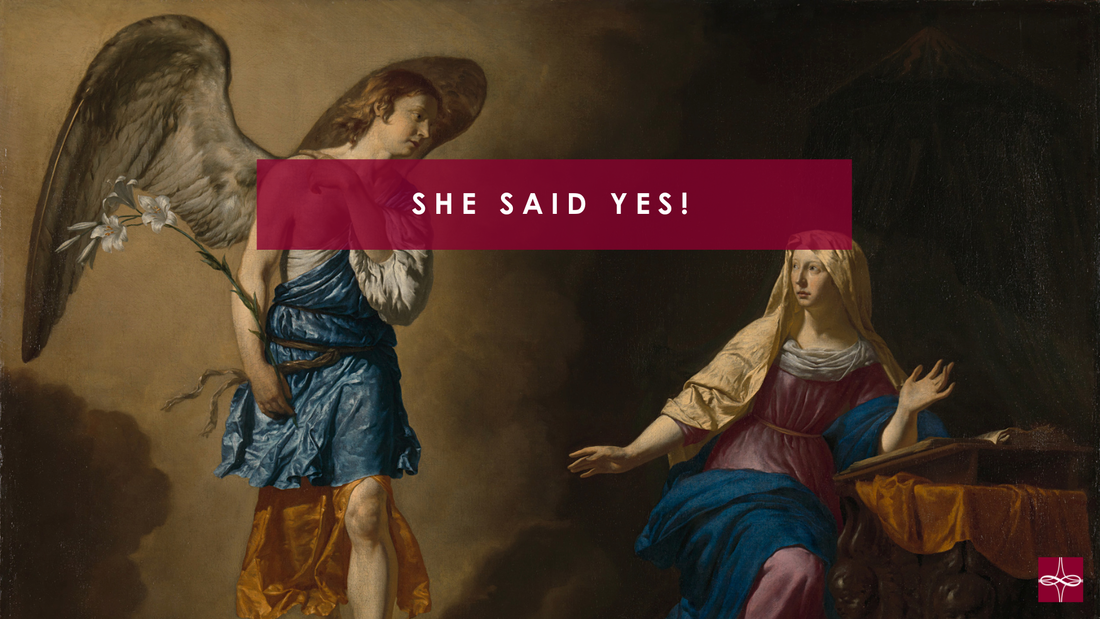

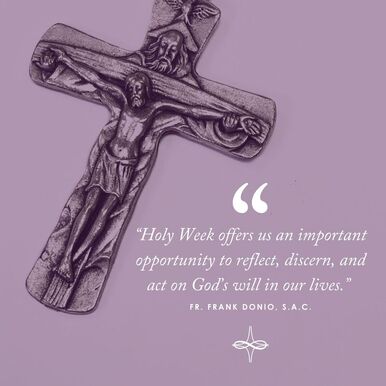
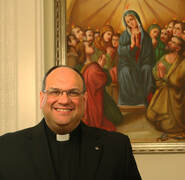
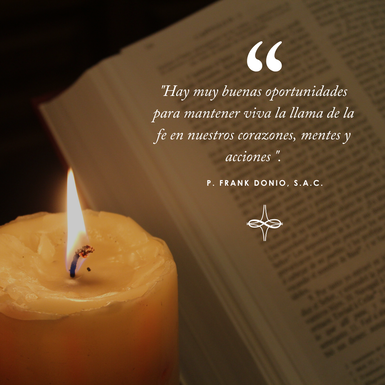
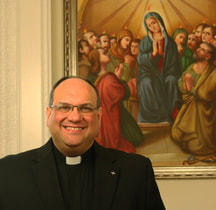
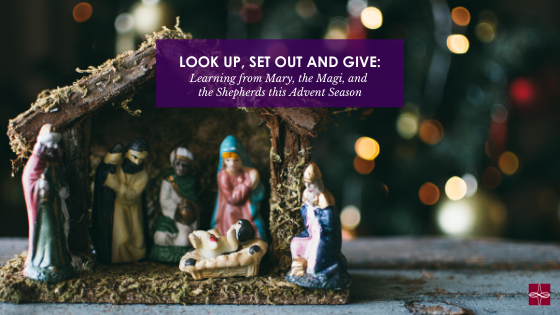

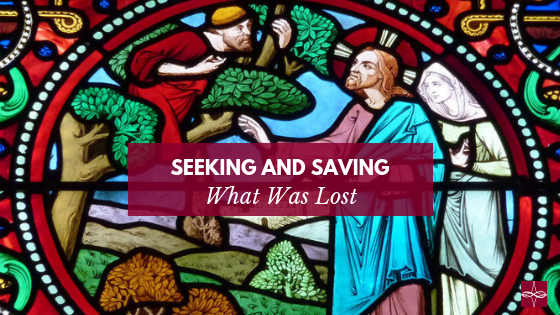

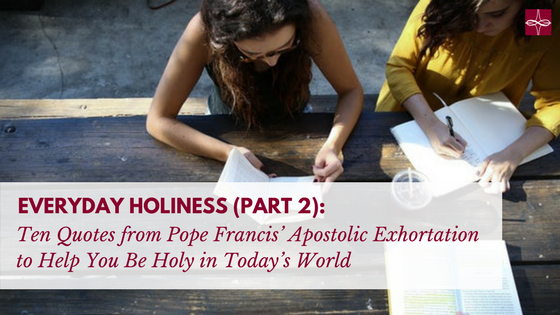

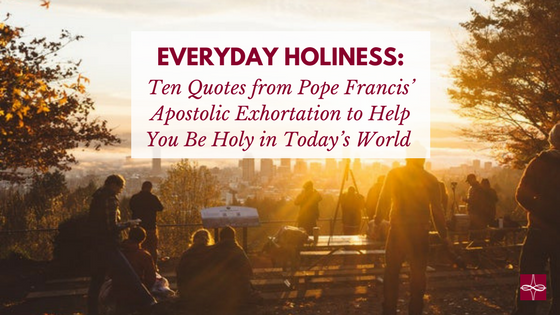

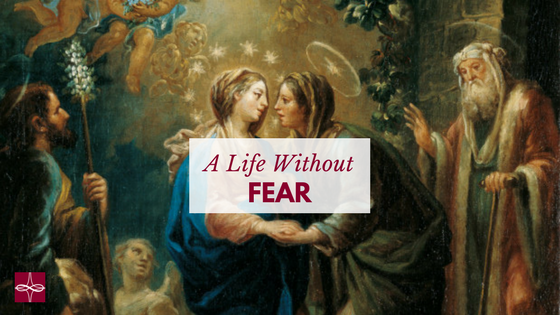

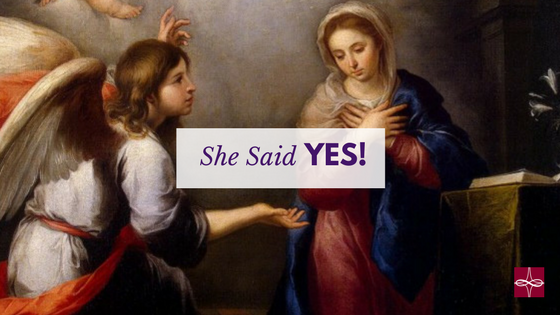

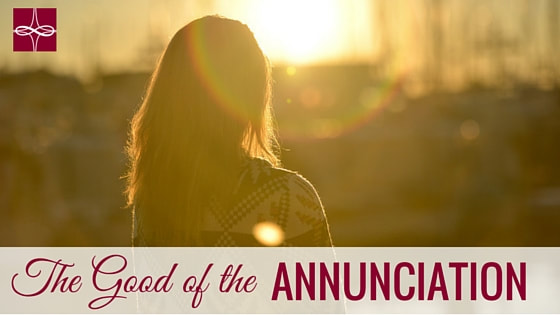

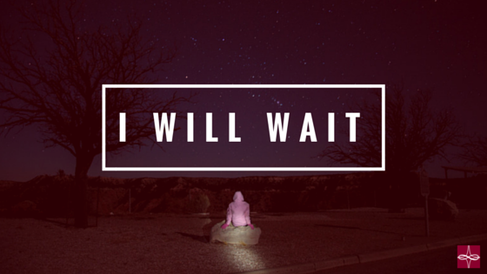



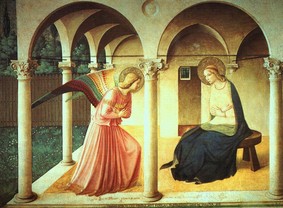

 RSS Feed
RSS Feed